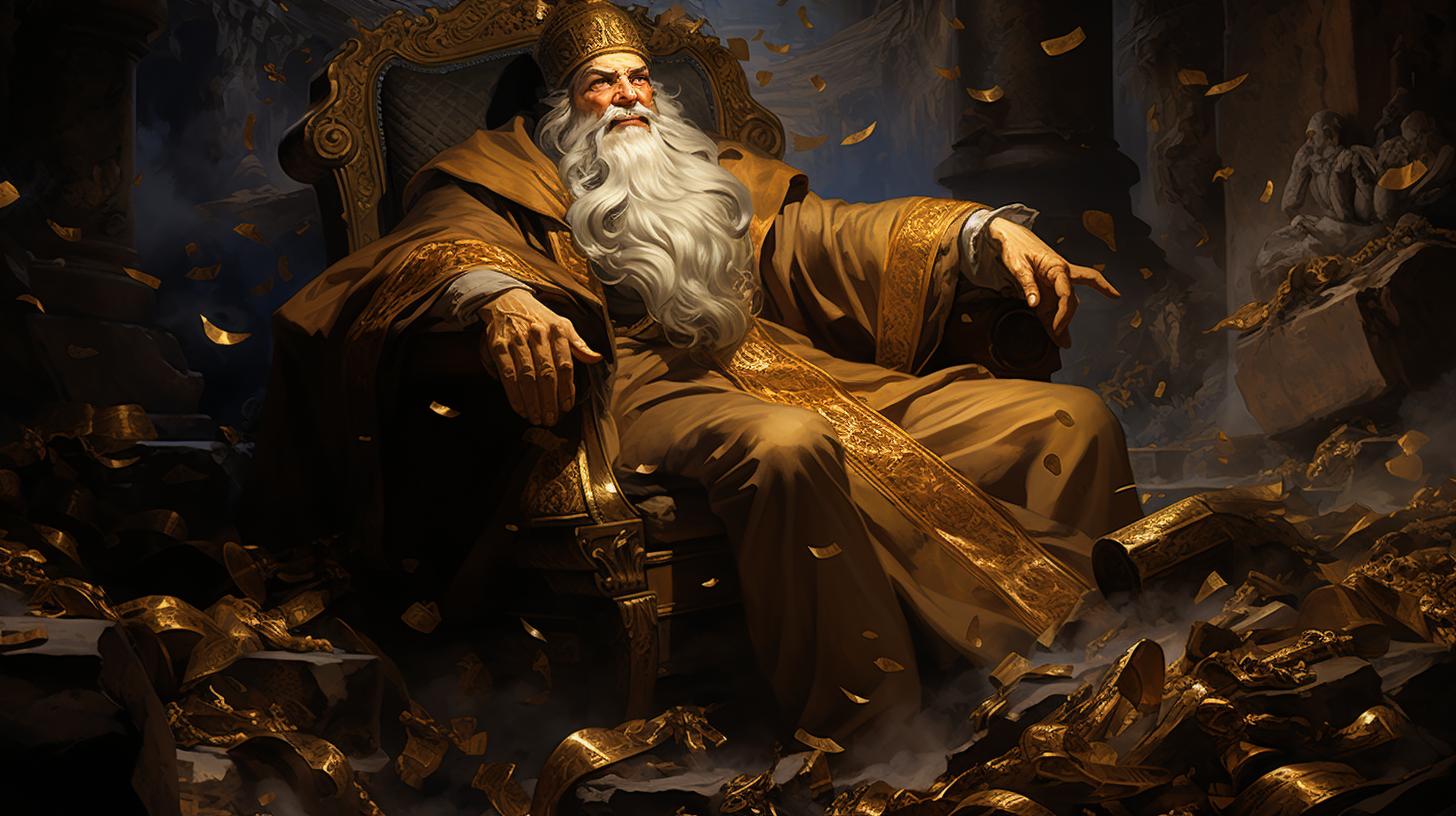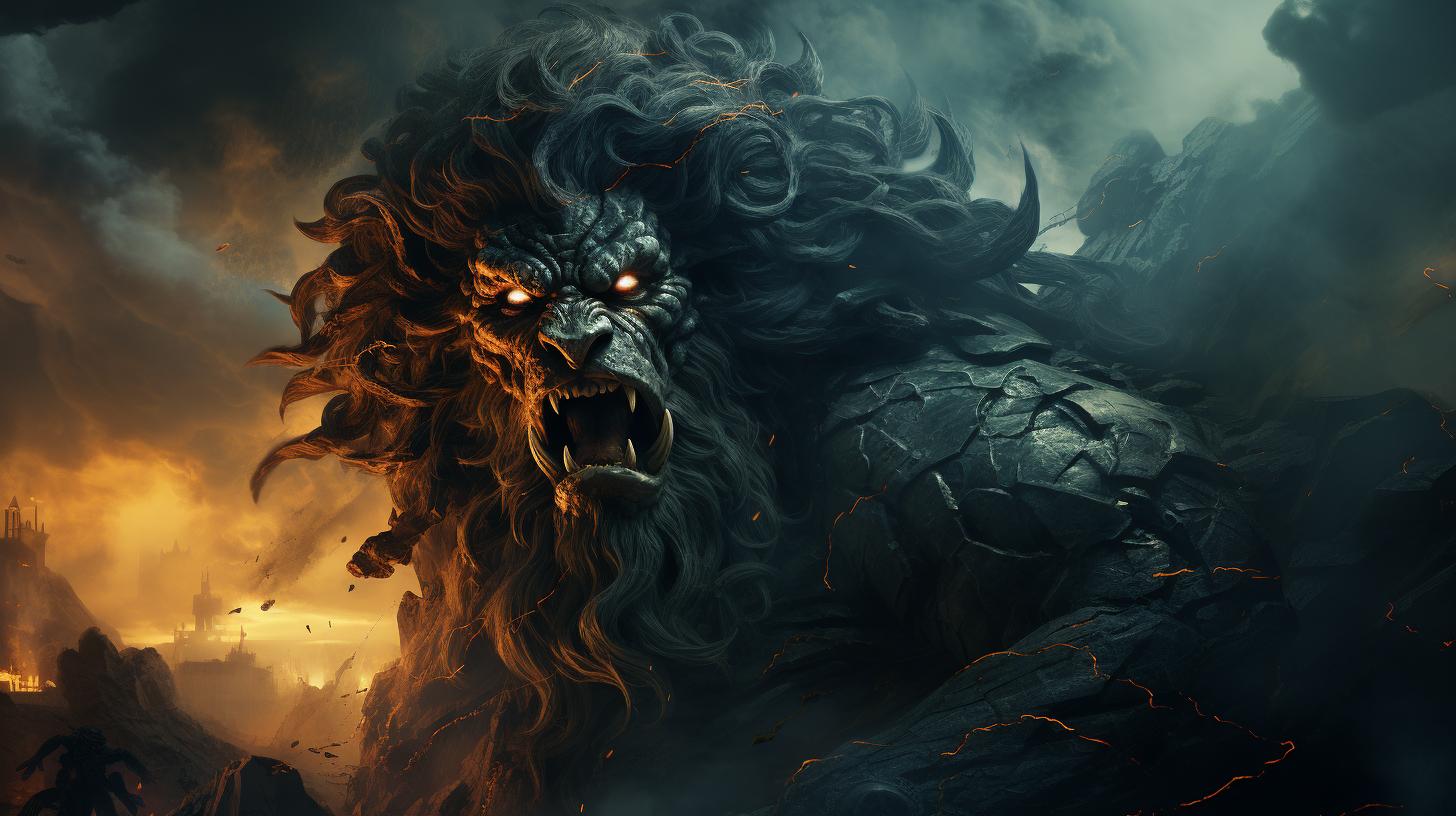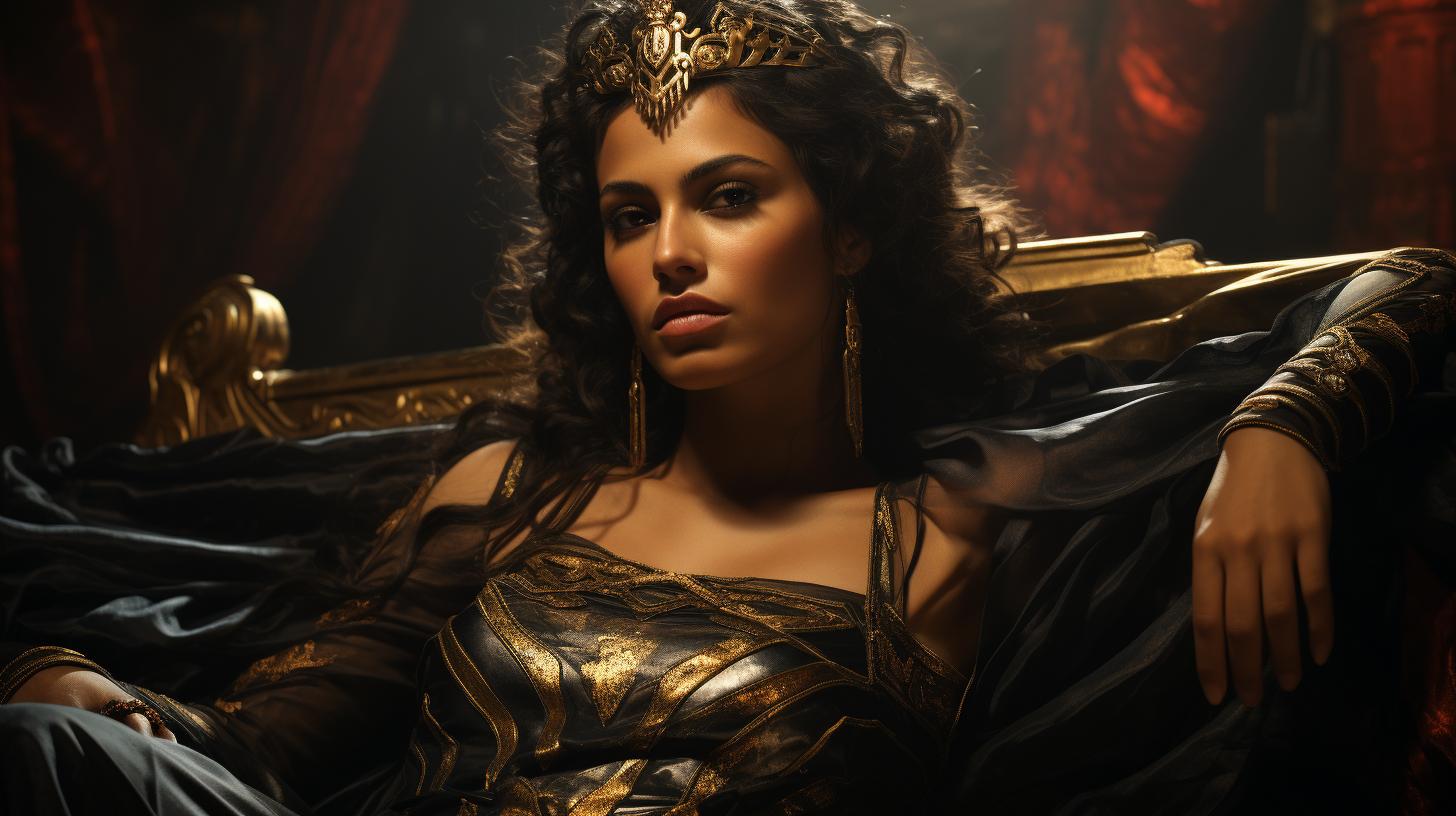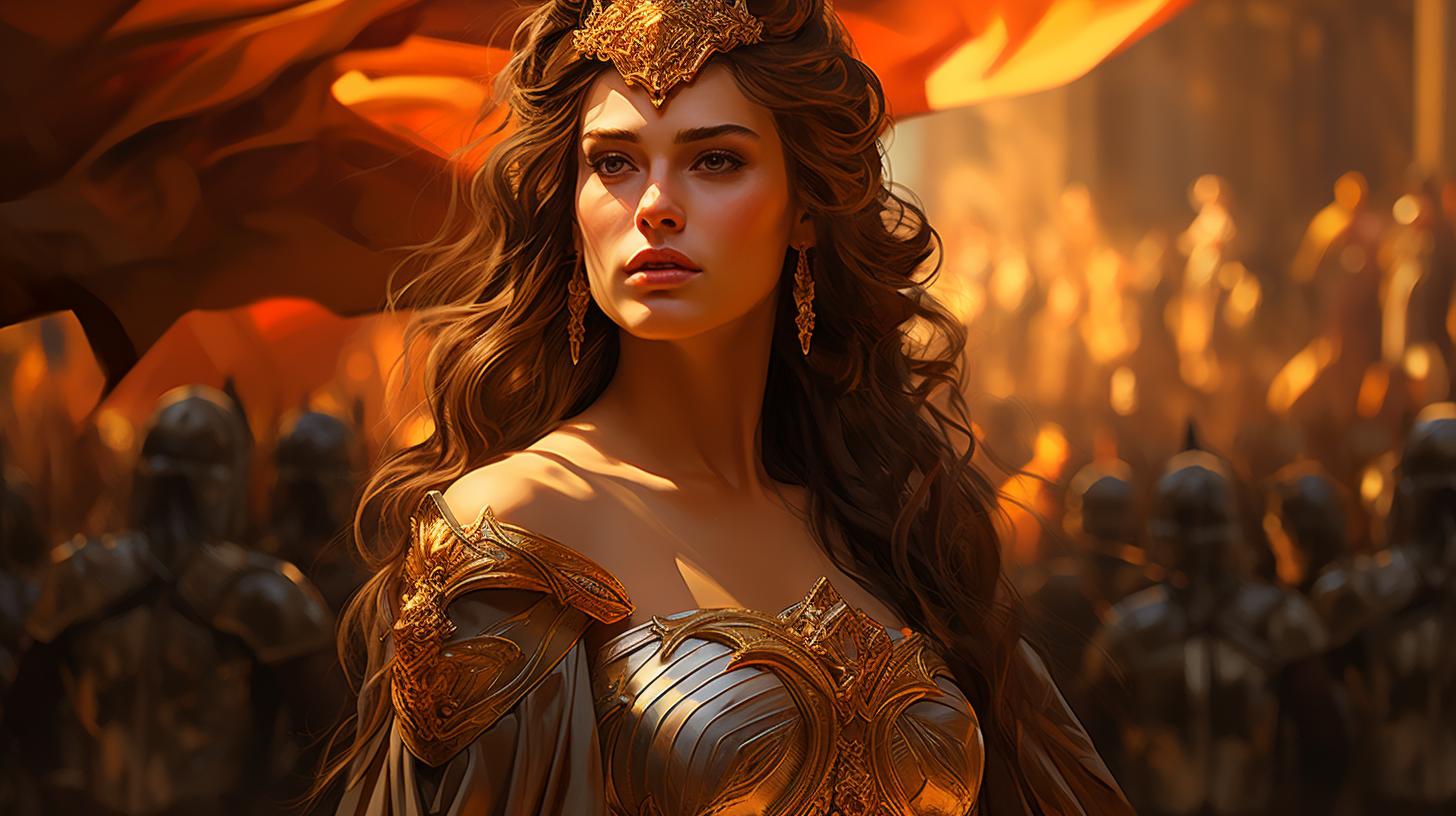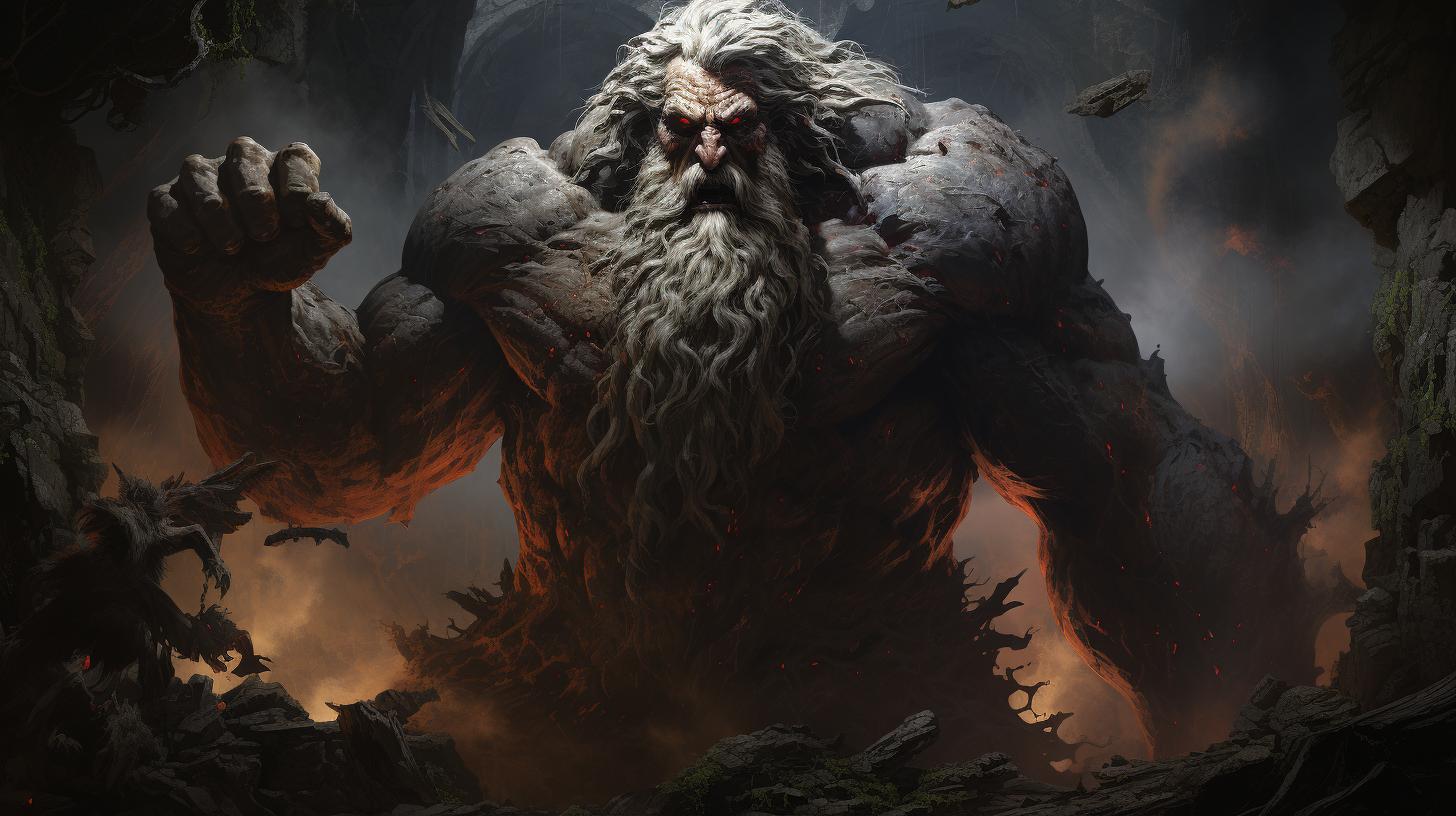Peleus Greek Mythology: Exploring the Fascinating Tales of a Greek Hero
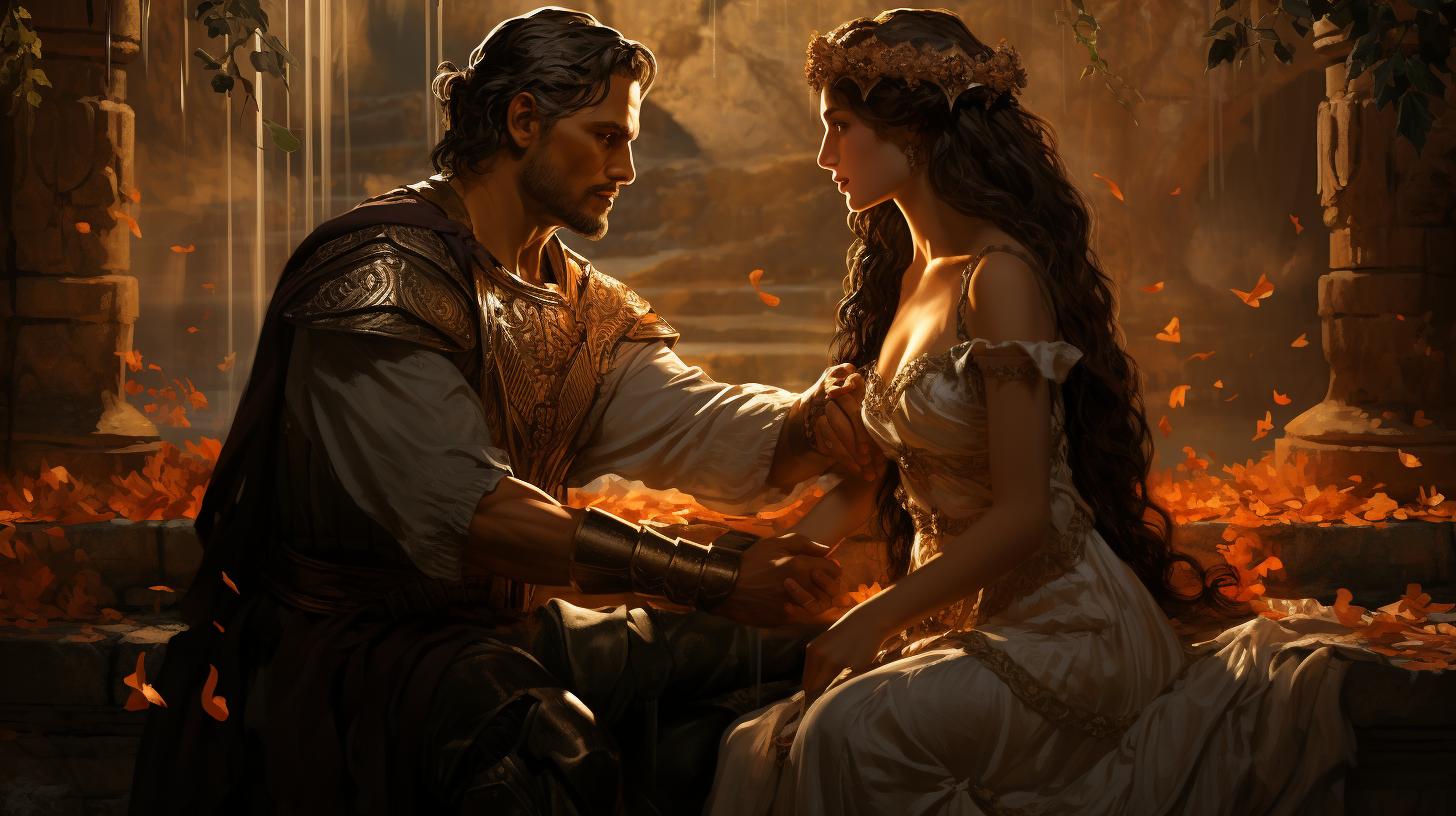
Peleus, a prominent figure in Greek mythology, embarked on a journey filled with adventures and tragedy. His marriage to the sea nymph Thetis led to the birth of the legendary warrior Achilles, whose role in the Trojan War became renowned.
Peleus also played a significant part in the quest for the Golden Fleece and the Calydonian Boar Hunt. His relationships with family members, other mythological figures, and deities shaped his destiny.
Today, we explore Peleus’ enduring legacy and cultural significance, examining his presence in ancient Greek literature and art, as well as his potential worship and mythological associations.
Peleus and Thetis: The Fateful Union
The story of Peleus and Thetis is a tale of love, prophecies, and divine interventions that had a profound impact on Greek mythology.
This section explores their meeting, marriage, and the birth of their famous son, Achilles.
The Meeting and Marriage of Peleus and Thetis
Peleus, the son of Aeacus, and Thetis, a sea nymph, first met under unique circumstances. Peleus had been exiled from his homeland and sought refuge on the island of Chiron, the wise centaur.
It was during his time there that Peleus encountered Thetis, captivated by her beauty and grace.
Overcoming various challenges, Peleus succeeded in winning the heart of Thetis, and they entered into a sacred union.
Their marriage was celebrated with grand festivities attended by gods and goddesses, an event that would have far-reaching consequences in the mythical world.
The Prophecy and Divine Interventions
However, the union of Peleus and Thetis was not without its challenges. It was foretold that their son would surpass his father in greatness, leading to discord among the gods. To prevent any potential threat, Zeus himself intervened and arranged for Thetis to marry a mortal instead of a god.
Despite the disruptions caused by the divine intervention, Peleus and Thetis remained committed to their union, trusting in the prophecy that their son would become a legendary hero.
The Birth of Achilles and its Impact
The birth of Achilles marked a significant turning point in the lives of Peleus and Thetis.
Achilles emerged as a remarkable figure destined for glory and tragedy. His immortal mother, Thetis, took measures to protect him, including dipping him in the River Styx to make him invulnerable, except for his heel.
Peleus raised Achilles with love and care, instilling in him the values of courage and honor. Little did they know that their son would go on to become one of the greatest heroes of the Trojan War, leaving an indelible mark on Greek mythology and forever changing the fates of all involved.
Peleus: Heroic Exploits and Tragic Events
Peleus in the Quest for the Golden Fleece
Among his notable exploits, Peleus participated in the iconic Quest for the Golden Fleece alongside Jason and the Argonauts.
Together, they faced treacherous challenges, battled mythical creatures, and overcame numerous obstacles in their pursuit of this legendary prize.
Peleus’ Role in the Calydonian Boar Hunt
Peleus also contributed to the renowned Calydonian Boar Hunt, a formidable challenge that involved assembling a band of great heroes. Alongside courageous warriors like Atalanta and Meleager, Peleus displayed his prowess and valor in combating the monstrous boar unleashed upon the land of Calydon.
Peleus’ Involvement in the Trojan War
One of the most significant chapters in Peleus’ life was his participation in the Trojan War. As the father of the legendary Greek hero Achilles, Peleus became intertwined with the epic conflict.
Though his active involvement differed, he remained a key figure whose familial ties influenced the course of the war and impacted the lives of many.
Throughout his heroic exploits, Peleus experienced both triumphs and tragedies, leaving an indelible mark on Greek mythology and inspiring future generations with his tales of valor and hardships.
Relationships and Interactions of Peleus
Discover the intricate web of relationships and interactions that shaped the life of Peleus, the Greek hero. From his close connections with his family to his encounters with other mythological figures and gods, Peleus’ interactions reveal the intricacies and complexities of his journey.
Peleus and His Family: Antigone, Telamon, and Phocus
Peleus’ familial ties played a significant role in his life. Explore the relationship between Peleus and his family members, including his wife Antigone, daughter of Eurytion. Delve into the bond between Peleus and his brothers, Telamon and Phocus, and uncover the impact these relationships had on his adventures and struggles.
Peleus’ Connection with Other Mythological Figures
Beyond his family, Peleus also had interactions with various mythological figures. Learn about his alliances and encounters with notable characters such as Heracles, Jason, and the Argonauts. Gain insight into the collaborative efforts and shared experiences that shaped Peleus’ heroism and expanded his mythological significance.
As a central figure in Greek mythology, Peleus had encounters with gods and goddesses that influenced his destiny. Explore his interactions with deities such as Zeus, Hera, and Athena, and delve into the divine interventions that shaped his path.
Discover the blessings, guidance, and challenges that Peleus faced as he navigated the realm of gods and their influence on mortal lives.
Legacy and Cultural Significance of Peleus
The stories of Peleus and his heroic feats have left an indelible mark on ancient Greek literature and art. He has been immortalized in various literary works, including poems and plays, that showcase his bravery, struggles, and accomplishments.
These tales continue to captivate readers, offering insights into the complex nature of Greek mythology.
Peleus in Ancient Greek Literature and Art
Peleus’ prominence in ancient Greek literature can be seen through his appearances in epic poems like the Iliad, where he plays a significant role in the mythological narrative of the Trojan War.
Artists and sculptors have also been inspired by his story, portraying him in various works of art, including pottery, reliefs, and statues. These depictions capture his strength, determination, and connection to other mythological figures.
Worship and Mythological Associations with Peleus
Although Peleus was not widely worshipped as a deity, his association with the island of Ikos suggests a cult-like following. In Ikos, he was revered as the “king of the Myrmidons,” his legendary warrior-companions.
While the extent and nature of this worship are not extensively documented, it highlights the cultural significance of Peleus within certain communities and their mythological traditions.
Peleus’ Influence in Contemporary Culture
Even today, the influence of Peleus can be found in various aspects of contemporary culture.
From novels and movies to video games and artwork, his story continues to inspire creative minds. His relationship with his son Achilles, the archetype of a tragic hero, has been explored in numerous adaptations, shedding light on themes of destiny, family bonds, and mortal ambition.
Through his enduring presence in ancient Greek literature, art, and modern interpretations, Peleus remains a significant figure whose legacy and cultural impact continue to resonate in our society.
…












